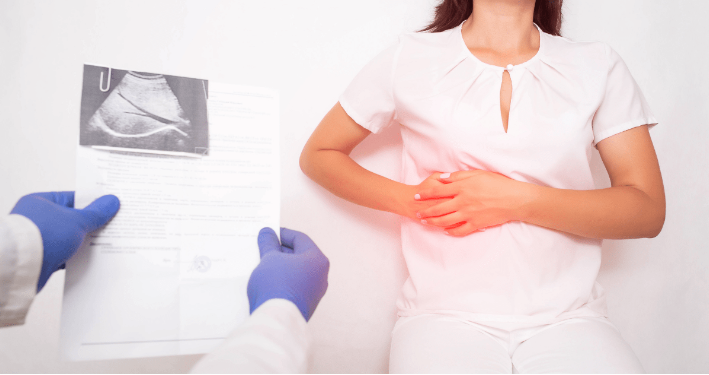
What is a Gallbladder Attack?
A gallbladder attack Symptoms happens when you have sudden, sharp pain in the upper right side of your belly. This pain is usually caused by gallstones or other issues with your gallbladder, a small organ that helps with digestion by storing bile.
Main Gallbladder Attack Symptoms
1. Sharp Belly Pain
The main sign is sharp pain in the upper right part of your belly. This pain can spread to your back or shoulder and might last from a few minutes to several hours.
2. Feeling Sick and Throwing Up
You might feel nauseous and start vomiting during a gallbladder attack. This usually happens because of the pain or issues with digestion.
3. Yellow Skin and Eyes (Jaundice)
If your skin and the whites of your eyes turn yellow, it could mean the bile ducts are blocked, causing bile to enter your blood.
4. Fever and Chills
Sometimes, a gallbladder attack can lead to an infection, which might cause a fever and chills. This could mean the situation is getting worse.
5. Indigestion and Bloating
You may feel bloated or have trouble digesting food because the gallbladder isn’t working right.
What Causes Gallbladder Attacks?
Gallbladder attacks are usually caused by gallstones—hard pieces that block the flow of bile. Other causes include:
- Gallbladder Inflammation (Cholecystitis): Inflammation, often due to gallstones.
- Gallbladder Infection: An infection that may happen with gallstones or inflammation.
- Bile Duct Blockage: Blockage in the bile ducts preventing bile flow.
Who is at Risk?
You might be more likely to have a gallbladder attack if you have:
- Diet: Eating a lot of fatty foods and not enough fiber.
- Obesity: Being overweight.
- Family History: If your family has had gallbladder problems.
- Pregnancy: Hormonal changes during pregnancy.
When to See a Doctor
If you experience these symptoms along with gallbladder attack symptoms, you should see a doctor right away:
- Severe Pain: If the pain is very strong or lasts a long time.
- Jaundice: Yellowing of the skin or eyes.
- High Fever: If you have a fever with chills or other infection signs.
- Difficulty Breathing: If the pain also makes it hard to breathe.
How Do Doctors Diagnose Gallbladder Problems?
Doctors use these tests to find out what’s wrong with your gallbladder:
- Ultrasound: To see gallstones and inflammation.
- CT Scan: Gives detailed pictures of the gallbladder and nearby areas.
- Blood Tests: Checks for signs of infection or other issues.
Treatment for Gallbladder Attacks
Treatment depends on how bad the attack is and what’s causing it:
- Medications: Pain relievers and antibiotics may be used.
- Surgery: In serious cases, the gallbladder might need to be removed.
- Lifestyle Changes: Eating a healthier diet and losing weight can help prevent future attacks.
How to Prevent Gallbladder Attacks
To lower the risk of future attacks:
- Eat Healthy: Focus on high-fiber foods and low-fat options.
- Exercise Regularly: Stay active to maintain a healthy weight.
- Drink Water: Staying hydrated is important for overall health.
FAQs
What are the first signs of a gallbladder attack?
The first signs include sudden, sharp pain in the upper right belly, nausea, and vomiting. If you notice these, see a doctor.
Can a gallbladder attack go away on its own?
Sometimes, a gallbladder attack might go away by itself, especially if it’s a temporary blockage. However, if symptoms continue or worsen, you should see a doctor.
How can you tell a gallbladder attack from a heart attack?
Gallbladder attacks usually cause pain in the upper right belly, while heart attacks often involve chest pain that might spread to your left arm or jaw.
What happens if a gallbladder attack isn’t treated?
If untreated, a gallbladder attack can lead to more serious issues like inflammation, pancreatitis, or infections that might need surgery.
How does diet affect gallbladder attacks?
Eating too many fatty foods and not enough fiber can lead to gallstones and increase the risk of attacks.
Conclusion
Knowing how to spot gallbladder attack symptoms is crucial for getting the right treatment and avoiding future problems. If you have these symptoms, reach out to your doctor. For more help and personalized care, contact Er Of Dallas.
Brand: Er Of Dallas
For more information and support about gallbladder health and other medical issues, contact Er Of Dallas.
For More Blogs Please Visit: guestpostcity.